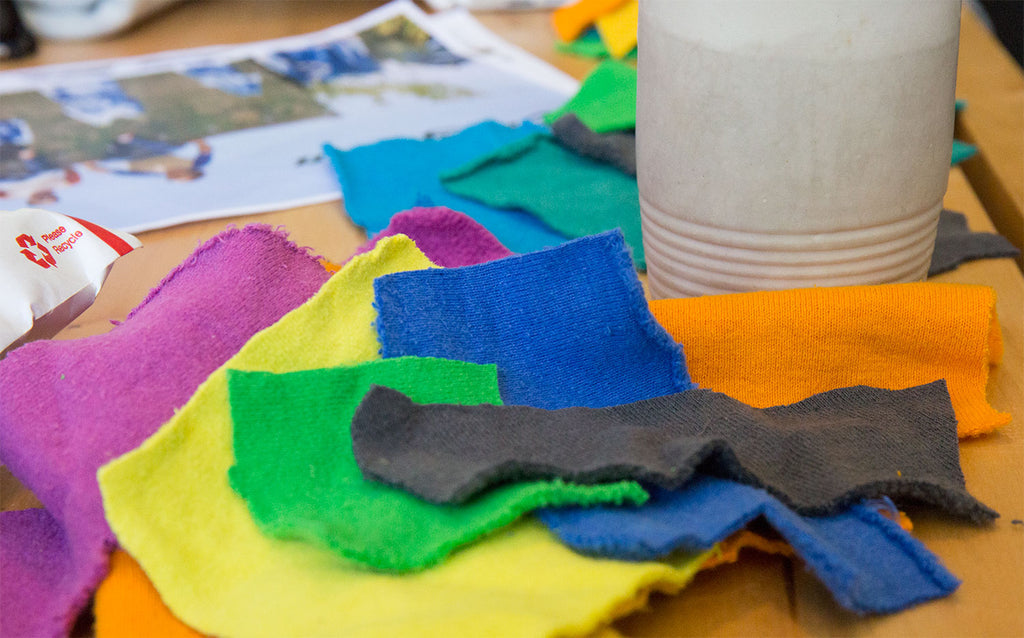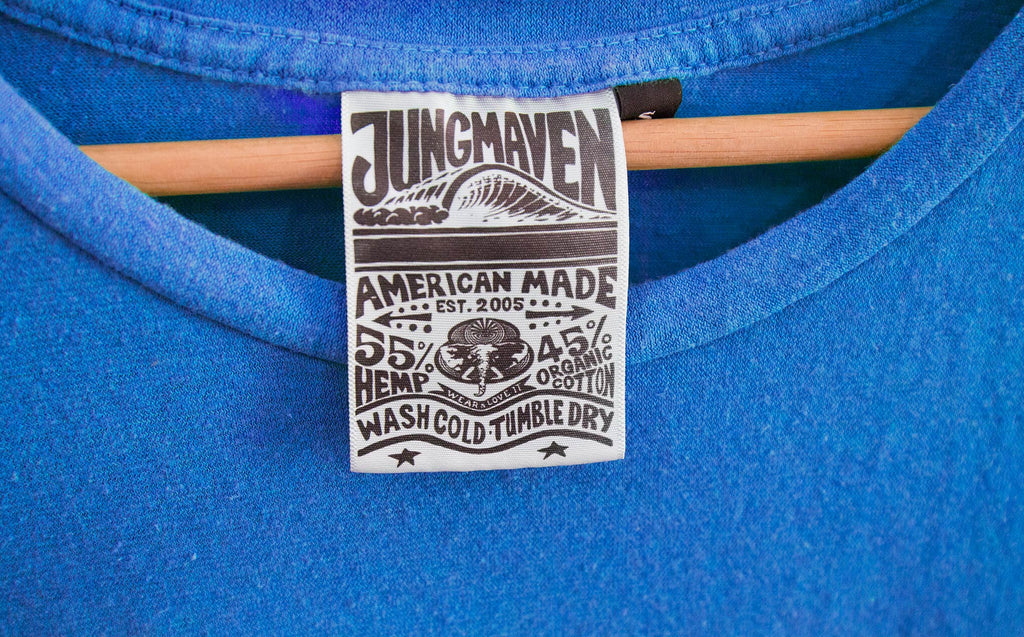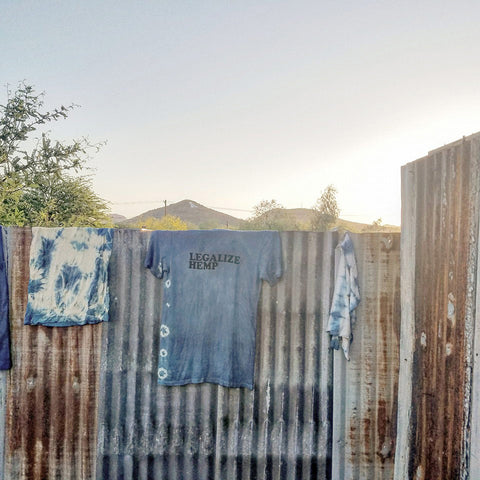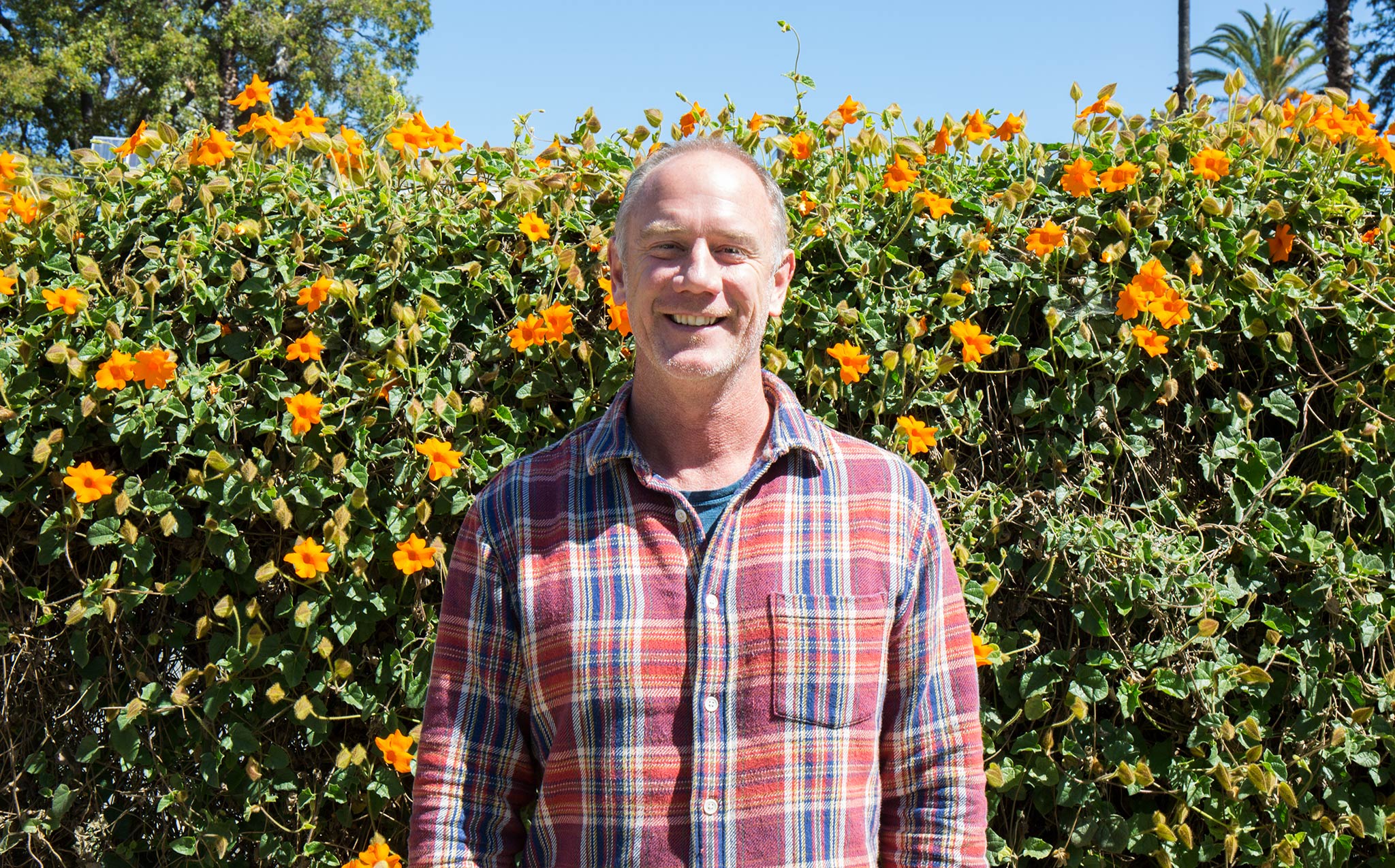On a recent visit to LA, we stopped by the Echo Park headquarters of Jungmaven to visit with founder Robert Jungmann. While taking a stroll to see the neighborhood and drinking some good strong local coffee, we got Jungmann talking about his passion and life's work for the past twenty years – hemp.
How did you initially get interested in working with hemp?
When I was attending Central Washington University a professor taught that if we grew hemp we could limit Washington state's reliance on old growth forests. That was the "aha" moment for me. I started researching industrial hemp and in a short time, I was hooked – I knew it would be my future. My goal to "get everyone in a hemp tee by 2020" is all about driving demand for hemp goods to get more hemp in the ground.
My mission is to build [grow] this company by making something everyone wants using a process that helps to counteract hundreds of years of polluting our air, water and land. I remind myself everyday that "We did not inherit this land from our ancestors, we are borrowing it from our children."

What are some of the properties of hemp that make it great for clothing?
Hemp fibers are strong and make a superior fabric that is more UV protectant and mildew resistant than cotton. Which is why clothing has been made with hemp for over 10,000 years. A Jungmaven hemp tee not only protects your skin but is soft and wears well.
Your hemp comes from China because the US doesn’t produce it for clothing. Why is it not available here and are there steps being taken to grow hemp in the US? How close are we to accomplishing that?
Hemp production was a big contributor to the US economy until the government made it illegal in the early 30's. It was legalized briefly during WWII for fabric production. China and most of Europe still grow hemp, and export to the U.S. This is a big election year and if you take a look at votehemp.com you'll see who is for and against growing hemp again the USA. Technically, Hemp is legal, if you want it. Federally legal, however, each state must vote for legalization independently.
Was it important to you to produce Jungmaven in the USA and are there extra challenges associated with that?
I have produced clothing in both China and the USA and I personally like being closer to the facilities and people of where my products are made. Plus, by manufacturing hemp clothing here in the USA, we are creating demand for a natural resource.

What about perks to producing everything in LA?
There are many factories and dye houses in LA that are able to build small production runs. As far as making t-shirts in the USA, Los Angeles is probably the best place to do it.
You’re the main designer of Jungmaven clothing. What are some of your influences for the line?
Being outdoors is the biggest influence on the design of everything Jungmaven. Many of the designs and ideas were born from time I spend running, hiking, traveling and experiencing new places near and far.
You’re about to embark on a summer road trip around the US – what’s the plan?
My mission is to get everyone in a Hemp Tee by 2020 which means getting the word out about Jungmaven and hemp production while I'm traveling. I'm excited to meet with shop owners, new accounts and host natural dye workshops. I will also be sharing these adventures on social media and will hopefully inspire other people to share their experiences with Jungmaven and pass the word on and get us closer to our goal for 2020.

Follow @Jungmaven on Instagram
What’s next for Jungmaven?
I plan to expand 100% Hemp fabric collection and add new construction details and new yarn dyed fabrics for tees and sweatshirts.
Are there other environmental fabrics or initiatives that you dream of incorporating into your company?
Right now, we are mastering the hemp shirt and testing other hemp apparel ideas, but I'm always looking ahead. New fabric developments in Sugarcane and Agave bi-products are interesting to me.
